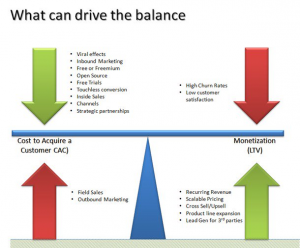The past few months have been tough for most businesses on a global scale because of the COVID-19 pandemic. Most businesses reacted by scaling down on their digital marketing efforts in a bid to break even as sales were generally going down.
Economies are now slowly recovering, and it is time for businesses and especially SMBs to revamp their marketing efforts.
This guide discusses:
- How your SEO agencies can unlock contracts during this period
- Top SEO strategies that you can recommend to your clients for better ranking after their SEO break
Let’s get right into it!
How SEO agencies can unlock contracts
How can your SEO agency convince businesses to get serious about SEO now? Here are the insights:
- Know the current state of your client’s business
Businesses are in either one of these categories:
- Triaging- where they are focusing on short-term goals trying to save up cash and rescue operations.
- Assessing – where optimism kicks in and businesses slowly start to be willing to look into opportunities.
- Pivoting- where businesses are making a shift to focus on products that are on-demand right now.
- Investing –where businesses are still thriving and looking for more growth opportunities.
You will advise a business on whether to plan or hold its SEO goals depending on its current state.
You can determine where a business lies among the above four categories by comparing their traffic for the past 3 months with that of the same period in the previous year. You can also compare performance for a similar duration before and after the pandemic.
A business with less than 10% drop in traffic or conversions is likely investing and looking for new opportunities. One with at most a 30% drop is slowly beginning to access opportunities. A business with more than 30% increase in traffic or conversions is in the triage stage.
- Know when to start the SEO conversation with your clients
Once you know how your clients are performing, how do you engage with them?
For triaging businesses, keep sharing SEO insights to maintain the relationship but do not engage just yet. Keep checking their improvement in traffic or conversions to know when to open up the conversation.
For assessing businesses, you can open up the conversation by recommending a few solutions.
- Suggest the data that your clients need to decide whether to start their SEO campaigns
There are several data points you should take into account when you are communicating restarting SEO to your clients. These include:
- Keyword research
A lot has changed in the past three months so there is a need to know what is hot right now. Use keyword research tools to identify the topics that people are looking for right now in your clients industry.
You should also identify the keywords that their competitors are ranking for right now, which will challenge your clients to get on back to their SEO campaigns.
Think with Google gives weekly insights on the current market trends.
SEO monitor’s Search Trends After COVID-19 can also give you valuable insights on what people are interested in right now.
- Evaluate brand vs non-brand traffic
Non-brand traffic is what drives most of SEO. Evaluate which between brand and non-brand searches are bringing in more traffic. That way, you can show your clients the value you can add to their business
- How seasonal demands have been affected by COVID-19
Look at the different shifts in demand and whether or not COVID-19 has affected some of these demands. You can then advise businesses when to refocus their efforts.
- Calculate projections of business results based on recommended SEO steps
You need to show your clients the value of your SEO proposal by calculating projections of conversions, traffic, or clicks that your clients should expect.
You can also use already conducted research from sources such as Deloitte’s Respond, Recover, and Thrive COVID-19 research that will help your clients develop more confidence in the future.
Top strategies to revamp SEO right now – SEO checklist
There is a huge shift toward online buying as people seek safer ways to shop for products. Businesses must optimize for a better online presence if they want to see growth. Below are the 3 must-have SEO practices that all businesses need to adopt:
- Optimizing for rich results
Rich results are the additional styling features that you include in your SERP result to highlight key information. These include images, content appearing in the people also ask section, breadcrumbs, podcasts, and more. Rich results give you more real estate on the SERPS which enables your business to be more visible to searchers which can increase traffic to your site.
You should aim for and optimize rich results to increase your online presence. Some very effective strategies to maximize your rich results are:
- Featured snippets or Position 0
These come in a list, paragraph, or video format.
- Carousels
A carousel is a list-like result that is structured in a way that people can swipe through it. Often, carousels display articles from a single site, what is known as a host carousel. You can enable a carousel for your site by adding carousel structured data to specific content types including movies, recipes, and articles, and restaurants.
If your company has excellent visuals that you can use to rank in the SERPS, you should be looking to optimize for a carousel rich result.
- Articles
You can also optimize blog, news, and sports articles for rich results. These articles can appear in carousels on Top stories displaying a video or a gigantic thumbnail. This requires image and headline optimization.
How to land a rich snippet:
- Do your SEO groundwork to get on the first page of the SERPs if you aren’t there already. You will likely not get a featured snippet if you are not already ranking.
- Include a FAQ section in your article to answer the common questions that customers ask, either on your website or in your articles and blog posts.
Start by identifying the search queries relevant to your business that are appearing on the SERPs. You should look to optimize for the queries that already have featured snippets as opposed to those which do not. This is because it is better to work with a query that Google has already identified as a candidate for a featured snippet.
Create content to precisely answer the question.
- Use the Q&A features on your Google My Business.
- Re-evaluate your content regularly
Check what is ranking in the SERPs and how you can modify your content to match or exceed the best result. Answering the 5Ws (who, where, when, what, why) and 1 H (how) can help you decide what changes to make to beat your rich snippet competitors on the SERPs.
- Write in a conversational tone to tailor your content to voice search
The process of ranking for rich snippets
- What are your potential keywords? Focus on question keywords
- Are you ranking on the first page of SERPs?
- Answer the question concisely using 50-60 words and create content using a conversational tone
- Include data that will help Google crawl your site better. These include proper formatting with headers and schema markup
- Track results using SEO tools such as Moz, SEMrush, and Ahrefs.
- Repeat the process as Google SEO is always changing
- Google My Business (GMB)
How do you correctly optimize GMB for SEO?
Google bases GMB rankings based on three factors namely:
- Relevance which means how well your content matches what a user is looking for
- Distance which matches a user’s search with their geo location
- Prominence which is how well known your business is
To optimize your GMB, include detailed information about your business including operational information, reviews, photos, posts, customer Q&As, and website building.
For photos, include your logo and photos of the inside if your business,
We know that many businesses have changed during this COVID-19 era, something that you should let your customers know using your GMB. These include new hours of operation, new safety measures, and so on.
Encourage your customers to leave a review.
Verifying your GMB
- Be consistent with all the details
Include your physical location or service area if you do not have a specific location. Include your contacts, both phone and contacts ensuring that the information is consistent with what is in your site
All details including the name of your business MUST be COMPLETELY identical.
- Claim your business
There are two ways to verify your business. You can include a postcard to your location or get a phone call from Google
- Explain your business in at most 750 words
Your business description will help users understand what your site is about. The description must be concise and engaging without salesy talk. There should be less than 250 words before a “read more” separator.
- Use local keywords to optimize for local search
Include two keywords and a geolocation in the description to help you rank in local search
Category optimization
Google allows you to include up to 10 categories in your GMB. It is best to stick with 2 to 3 categories to avoid over-optimization.
Based on which industry your business is in, you may be able to add category-specific features. These include:
- URLS in menus for restaurant businesses
- Class ratings for hotels
- Creating and promoting educational content
Educational content helps you to build authority in your space. Create and regularly update educational content.
Once you create a well-researched authority piece, you should ensure that you place it all across the web.
Social media
Start with your website as you move to your social media pages and then to your social media channels. On social media, find boards where people are asking the questions that you want to provide answers to. These include Reddit and Quora.
Marketing partnerships
Partner with others in your industry to help market your content such as influencer marketing, co-marketing, and partnering with industry experts.
Different content formats
To capture as many types of audiences as possible, create different versions or formats of the same content. For example, you can have an article, a PDF, a white paper, an infographic, and a YouTube video for the same content.
Email marketing
Email marketing is a big SEO strategy so start getting those emails if you haven’t already. Have different lists of emails based on the type or stage of users that you have.
You should serve different types of content to people in the different lists on your email. Once people are getting highly valuable informational content to their emails, they will visit your site. That will earn you more traffic and lower bounce rates on your site which helps your SEO.
- Link building
Link juice is one of the most crucial factors for SEO. The first step to getting quality links is to create high quality content that other people will want to link to.
Secondly, reach out to people who have already shared similar content to what you have created in the past and ask them to update their reference with your new content.
Look for similar expert content and ask to include a reference with a link to the content on your site.
You can also include links to your social media sites on your paid ads
Conclusion
Clients need empathy as much as they want their businesses to thrive. Understand their current health of your clients’ businesses so that you can decide whether or not to offer SEO solutions and which strategies to suggest. The process involves:
- Identifying the health of your clients’ businesses through looking at their traffic or conversions
- Checking the progress of your clients so that you can know when to start the conversation
- Give your clients relevant insights to motivate them to start their campaign
- Offer them solutions for the short and long term.
Since most business is happening online right now, you also need to present your clients with a must-do SEO checklist that includes:
- Optimizing for rich results
- Optimizing Google My Business Page
- Creating and promoting educational content
Digital & Social Articles on Business 2 Community
(48)
Report Post





